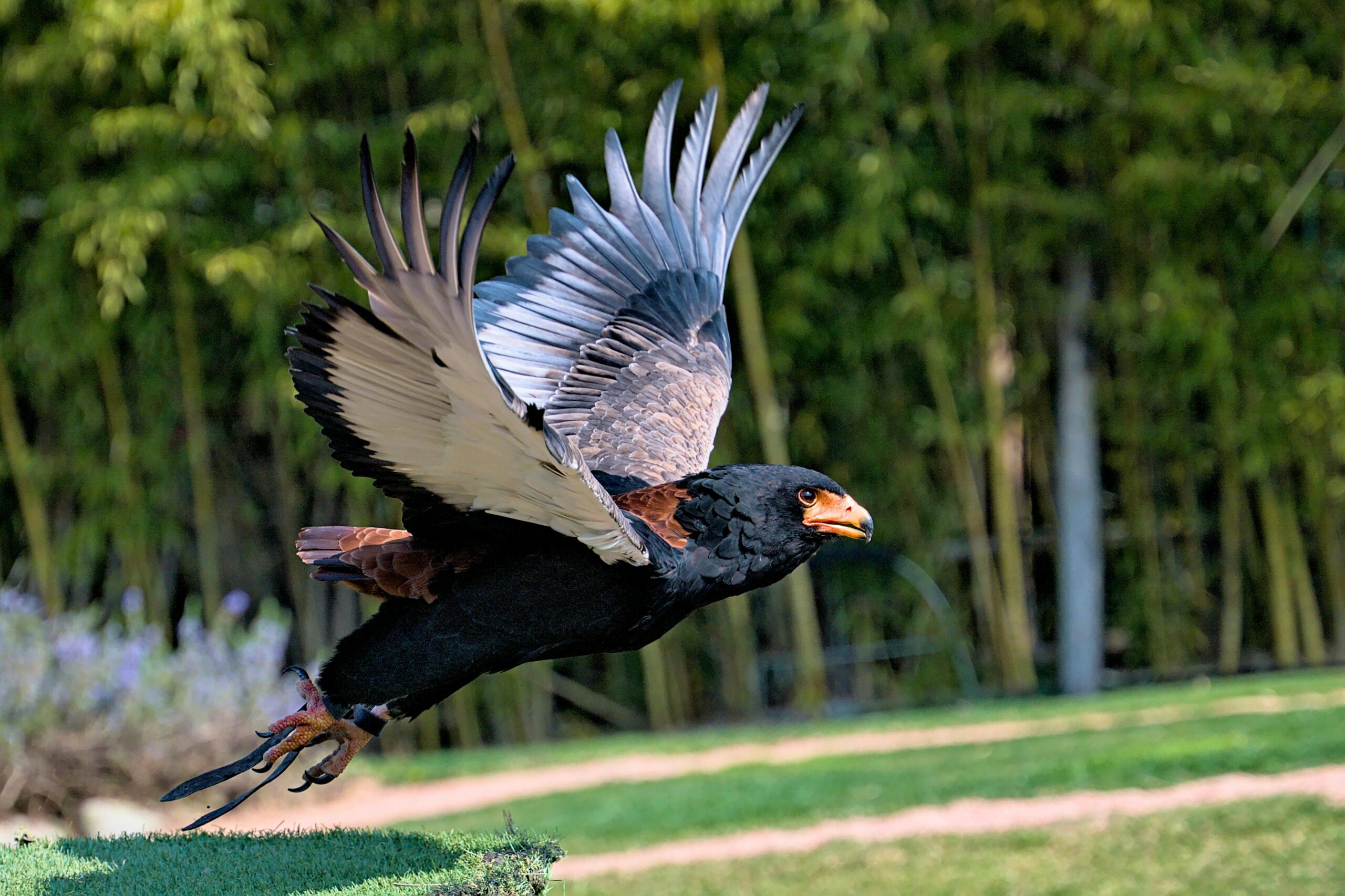Bateleur eagles are known to be opportunistic feeders, and they do indeed eat roadkill as part of their diverse diet. These impressive birds of prey are adept at locating carcasses, often being the first to arrive at a large kill alongside vultures. Their ability to discover carrion, including smaller roadkill, sets them apart as efficient scavengers in the African ecosystem.
Bateleur Eagles and Their Feeding Habits
Bateleur eagles are generalist feeders, meaning they have a wide range of prey in their diet. While they are skilled hunters, capable of taking down small mammals, birds, and reptiles, they also readily consume carrion, including roadkill. These birds are known to spend up to 8 hours a day in the air, covering vast distances in search of food.
Scavenging Abilities of Bateleur Eagles
Bateleur eagles have a remarkable ability to locate and identify potential food sources, including roadkill. They often fly along roads, scanning the ground for any signs of carcasses. Their keen eyesight and efficient soaring abilities allow them to be among the first to arrive at a large kill, often alongside vultures. This ability to quickly discover and capitalize on available food sources is a key part of the bateleur’s survival strategy.
Opportunistic Feeding Behavior
Bateleur eagles are opportunistic feeders, meaning they will take advantage of whatever food sources are available to them. In addition to hunting their own prey, they are known to steal food from other raptors or attempt kleptoparasitism of white-backed vultures. This adaptable feeding behavior allows bateleur eagles to thrive in a variety of environments and take advantage of diverse food sources, including roadkill.
Prey Spectrum of Bateleur Eagles
Bateleur eagles have a remarkably diverse prey spectrum, with around 160 known prey species. Their diet includes a wide range of mammals, birds, and reptiles. While they are skilled hunters, they are also adept at finding and consuming smaller carcasses, including roadkill, before other scavengers can claim the food source.
Mammals in the Bateleur’s Diet
Bateleur eagles are known to prey on a variety of small to medium-sized mammals, such as hares, mongooses, and even young antelope. They are also known to scavenge on larger mammalian carcasses, including those found on the side of the road.
Birds and Reptiles as Prey
In addition to mammals, bateleur eagles also hunt birds and reptiles. They are skilled at taking down birds in the air, as well as capturing ground-dwelling reptiles. These diverse prey items, combined with their scavenging abilities, make bateleur eagles highly adaptable and successful predators.
Importance of Roadkill in the Bateleur’s Diet
Roadkill plays a significant role in the bateleur eagle’s diet, particularly during times of resource scarcity or when other prey may be less abundant. These birds are often the first to arrive at a carcass, allowing them to take advantage of this readily available food source before other scavengers can claim it.
Juvenile Bateleurs and Roadkill
Interestingly, juvenile bateleur eagles appear to attend large carcasses, including roadkill, much more frequently than adult birds. This may be due to their inexperience in hunting and the need to rely more heavily on scavenging to meet their nutritional requirements.
Roadkill and Breeding Season
During the breeding season, bateleur eagles tend to consume more prey that they have killed themselves, rather than relying solely on scavenging. However, roadkill and other carrion still play an important role in their overall diet, providing a reliable source of food to support their energy-intensive breeding activities.
Conclusion
In conclusion, bateleur eagles are indeed known to eat roadkill as part of their diverse and opportunistic feeding habits. These impressive birds of prey are adept at locating and capitalizing on available food sources, including carcasses found along roads. Their ability to quickly discover and consume roadkill sets them apart as efficient scavengers in the African ecosystem, contributing to their overall success and adaptability.



